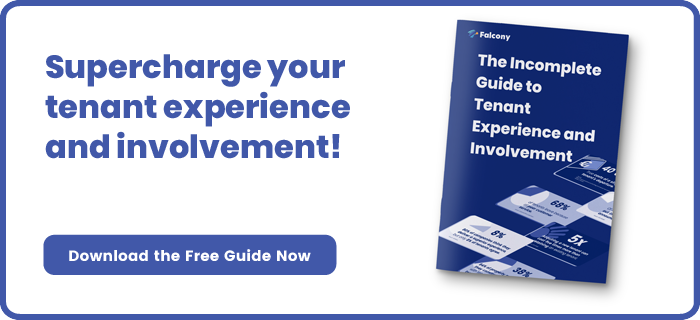How to decrease Tenant Turnover with Tenant Portals?
Tenant turnover poses significant challenges for commercial real estate (CRE) professionals, leading to vacancy losses, increased leasing costs, and operational disruptions.
In today's competitive market, minimizing tenant turnover is essential for property owners and managers seeking to maintain stable occupancy levels and maximize property performance. Tenant portals emerge as a valuable tool for decreasing tenant turnover by enhancing communication, streamlining processes, and improving tenant satisfaction. Let's explore effective strategies to decrease tenant turnover with tenant portals in commercial real estate:
Proactive Communication
Effective communication is key to reducing tenant turnover. Tenant portals serve as centralized platforms that facilitate seamless communication between landlords, property managers, and tenants. Property owners can use tenant portals to keep tenants informed about property updates, maintenance schedules, and upcoming events. By providing timely and relevant information, property owners can foster transparency, trust, and engagement with tenants, ultimately reducing turnover.
Through tenant portals, property managers can address tenant concerns promptly, respond to service requests efficiently, and provide personalized assistance as needed. Proactive communication builds strong landlord-tenant relationships, increases tenant satisfaction, and reduces the likelihood of tenants seeking alternative leasing options.
Streamlined Service Requests
Tenant portals streamline service request processes, allowing tenants to submit maintenance requests and report issues conveniently online. By providing tenants with intuitive interfaces and self-service functionalities, tenant portals empower tenants to address their needs promptly, without the need for extensive communication or paperwork.
Property managers can use tenant portals to prioritize service requests, schedule maintenance activities, and track progress in real-time. By expediting service resolution and ensuring timely maintenance, property managers can enhance tenant experiences and satisfaction, ultimately reducing turnover.
Access to Resources and Amenities
Tenant portals offer tenants convenient access to property resources, amenities, and community events. Property owners can use tenant portals to showcase property features, amenities, and services available to tenants, promoting a sense of community and belonging within the property.
By providing tenants with access to exclusive offers, discounts, and events, property owners can incentivize tenants to stay and renew their leases. Tenant portals also enable property owners to gather feedback and suggestions from tenants, allowing them to tailor offerings and amenities to meet tenant preferences effectively.
Lease Renewal Reminders
Tenant portals can be used to send automated lease renewal reminders to tenants, prompting them to consider renewing their leases before they expire. By sending timely reminders and providing incentives for lease renewal, property owners can encourage tenants to stay and continue their leasing agreements.
Property managers can use tenant portals to communicate lease renewal options, terms, and incentives directly to tenants, facilitating informed decision-making and negotiation. By making the lease renewal process transparent and convenient, property owners can increase the likelihood of tenants renewing their leases and reduce turnover.
Conclusion
Tenant portals offer valuable features and functionalities that enable property owners and managers to decrease tenant turnover in commercial real estate. By facilitating proactive communication, streamlining service requests, providing access to resources and amenities, and sending lease renewal reminders, tenant portals empower property stakeholders to enhance tenant satisfaction, engagement, and retention.
As the commercial real estate market continues to evolve, tenant portals remain a valuable tool for reducing tenant turnover, maintaining stable occupancy levels, and maximizing property performance. By leveraging tenant portals effectively, CRE professionals can foster strong landlord-tenant relationships, improve tenant experiences, and ultimately achieve long-term success in the competitive CRE landscape.
If your organisation is looking for a 360° tenant experience tool to involve all employees, service providers and tenants to improve the quality of your operations, have a look at the 30-day free trial of Falcony | Tenant Portal:
We are building the world's first operational involvement platform. Our mission is to make the process of finding, sharing, fixing and learning from issues and observations as easy as thinking about them and as rewarding as being remembered for them.
By doing this, we are making work more meaningful for all parties involved.
More information at falcony.io.

Related posts
How Tenant Portals Increase Occupancy Rates
In the competitive landscape of commercial real estate (CRE), maintaining high occupancy rates...
What Is A Tenant Portal?
Tenant engagement and involvement require open communication, transparency, and accessibility....
Enhancing Tenant Involvement: Strategies for Effective Communication
Effective communication is the cornerstone of tenant involvement in commercial real estate.
...





